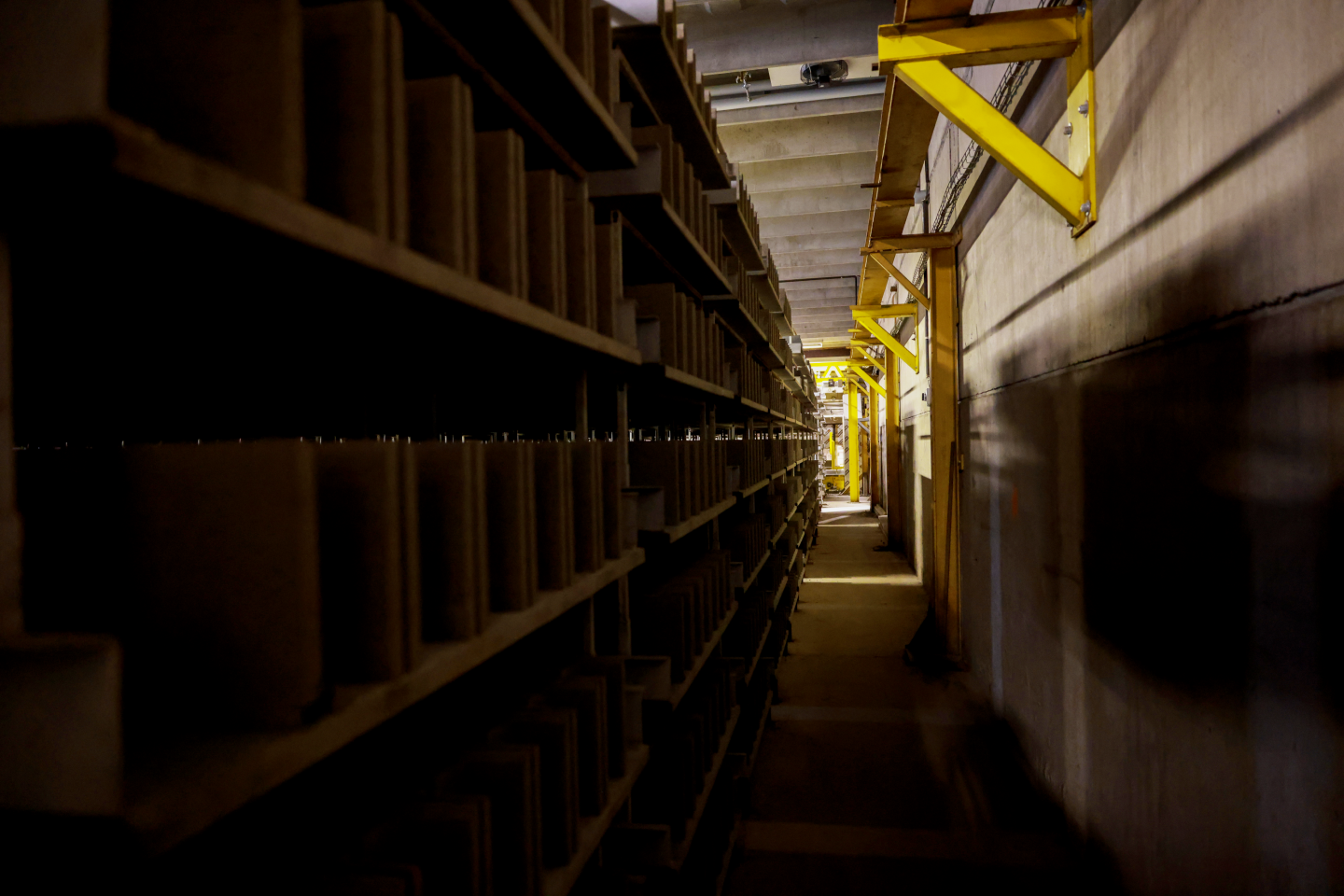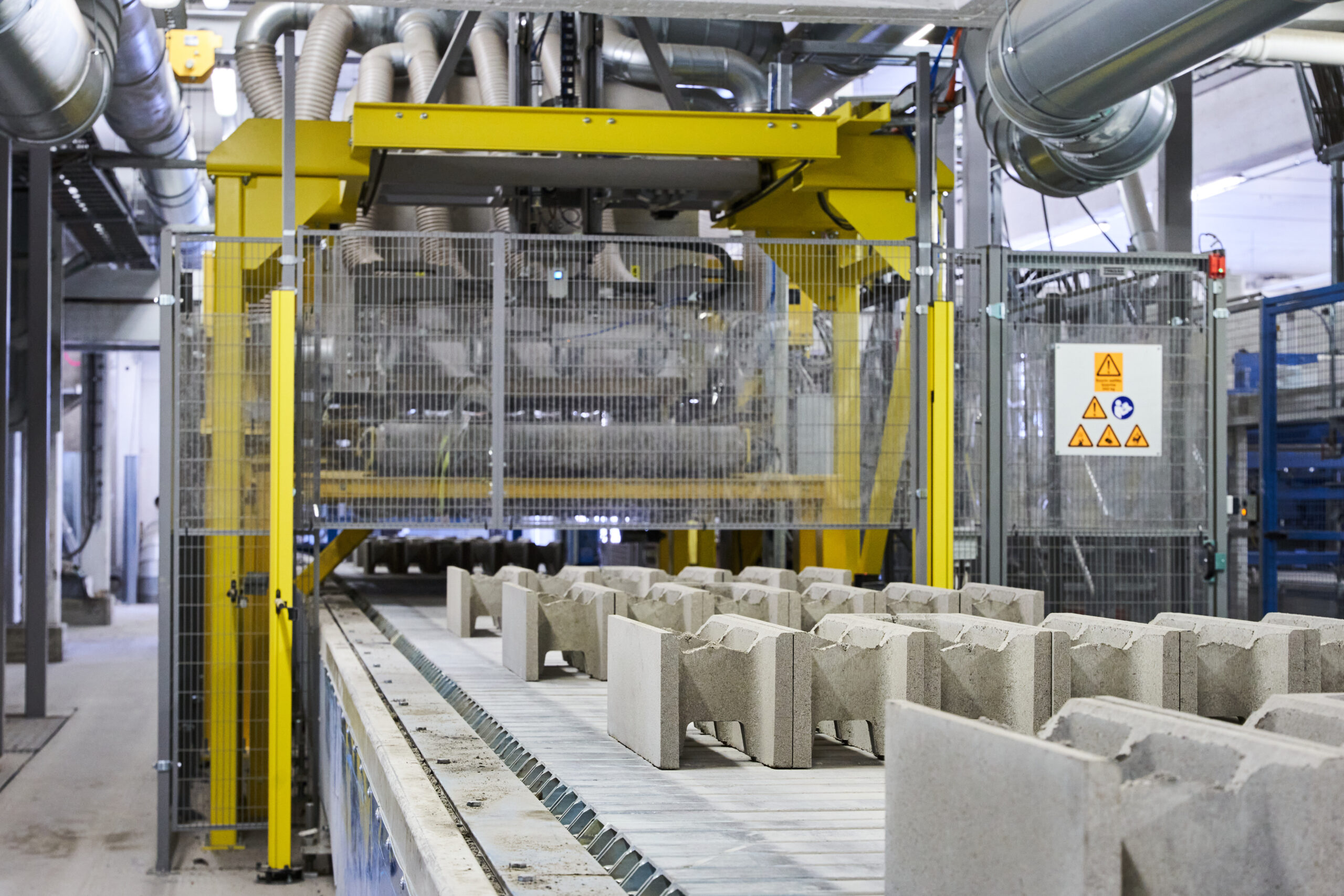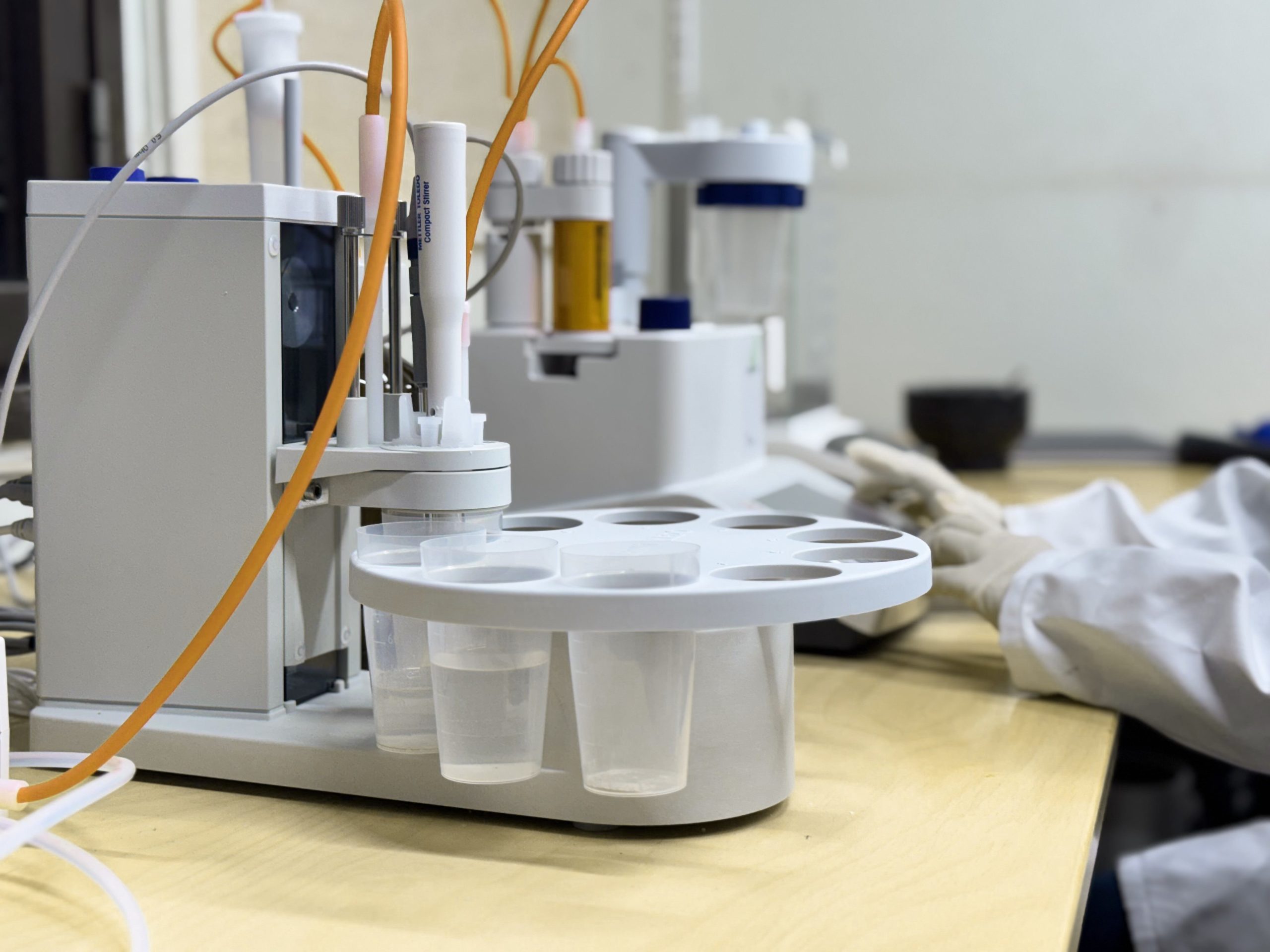Home » Technology » Lower emissions
Greener
Lower emissions
Smaller footprint of concrete products with Carbonaide
One of the obvious benefits of the Carbonaide CO₂ curing technology is that in addition to the utilization benefits (cheaper, faster, stronger), we can also permanently store carbon in concrete products. Utilize and Store.
Depending on the customer needs, the CO₂ curing process can be adapted to balance the CO₂ benefits between the utilization and storage.
Sometimes you want to maximise the carbon storage, while in other cases production benefits, such as cement reduction or faster production are emphasised. The Carbonaide Service Platform allows optimization of the concrete mix and the process benefits according to the changing needs.

Carbonation reduces concrete’s greenhouse gas emissions via two distinct mechanisms.
Less Cement, Lower Emissions
The emissions from raw materials are reduced as less high-emission Portland cement is needed in the production. The replacement ratio varies from 20% to 100% depending on the product requirements and production location.
The table beside presents an example case from the first Carbonaide production facility.

Product | CEMI | SCM |
|---|---|---|
Total production
| 80% | – |
Lightweight wall element | 60% | 40% limestone filler |
Pavement | 40% | 60% steel slag |
Lightweight wall element | 10% | 90% steel slag |
Permanent carbon storage
Carbonation also generates negative emissions by removing carbon dioxide that would otherwise end up in the atmosphere. Depending on the binder composition, the amount of negative emissions varies from 20% to 50% of binder weight. This decreases the carbon footprint of the concrete.
The negative emission can be used in two ways in the concrete production value chain. Stored carbon can be counted as a reduction in the concrete product CO₂ footprint or sold as carbon credits to a third party in voluntary carbon markets.
The Carbonaide solutions can turn concrete products from a large emission source into a carbon sink.

